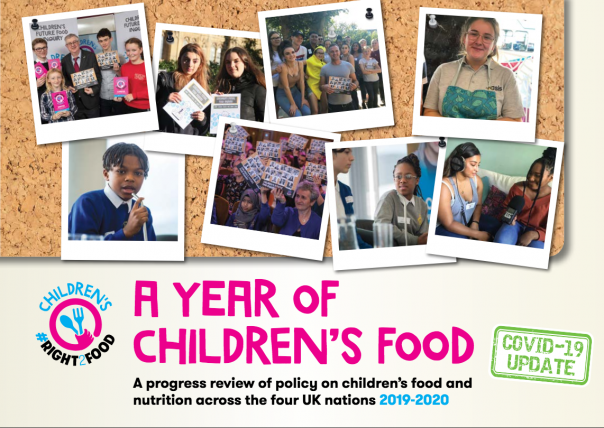Pandemic and unemployment worsen children’s food insecurity, says report

Young Food Ambassadors for the Children’s Right2Food Campaign argue that coronavirus pandemic has resulted in high levels of food insecurity, but that the inequality and food insecurity issues faced by children and families are not new.
Dame Emma Thompson, an ambassador for the campaign, says she supports the young people’s demand for a formal Government response to their campaign for a Children’s Right2Food Commission that would speed up national action and ‘monitor and protect’ children’s food in the UK.
She said: “The ‘compassionate society’ that we pride ourselves on has become an uncomfortably glaring misnomer. If it’s justice, humanity and moral duty that we care about here, then why are millions of children going hungry every day?
“We already had unacceptable levels of food poverty in the UK and the current Covid-19 crisis is leaving many more of our children at risk of food insecurity. It’s a scar on our nation’s conscience and we need our Government to act now.”
Young Food Ambassador Dev Sharma, aged 15, said: “Our Charter is a comprehensive list of actions we want the government to take to reduce children’s food insecurity in the UK.
“Many of these things will also help tackle childhood obesity as we know that unhealthy food is so often the cheapest option and is therefore often what teenagers end up eating. Please Boris – read our Charter. It’s full of things you can easily achieve.”
Saffron Stedall, aged 16, added: “Lockdown has been really tough for so many young people and affected our lives in so many ways.
“But there is now a real possibility that government could bring in some policies to help end the stigma of poverty and improve kids’ access to healthy, sustainable food. It would be good for our health and good for the planet too.”
Executive director Anna Taylor of the Food Foundation said: “Covid-19 has shone a spotlight on the scale of children’s food insecurity and the health risk posed by such high levels of childhood obesity in the UK.
“We can no longer delay the changes we urgently need to ensure all children across the UK have access to healthy food, and that no child living in poverty falls through the gaps. The solutions to build a more resilient future for our children are set out in the Children’s Right2Food Charter.
“Young people are ready to act. It’s time for political leaders to step up and support them.”
The Young Food Ambassadors are releasing a Right2Food podcast series, with the first and second episodes out today (July 13th).
The ‘A Year of Children’s Food’ report, which identifies multiple Covid-19 delays to urgently required policy change, demonstrates that increasing financial and social instability for many families will mean that further delays to policy developments could be all the more devastating for children living in poverty in the UK.
The Children’s Right2Food Charter, which was delivered to 10 Downing Street in April 2019, but which has yet to receive a formal response from the Department for Education, has been updated in light of the problems exacerbated by the Covid-19 lockdown, and provides an evidence-based road map for the government to ensure that every children has access to a healthy diet.
The key proposal put forward by the Young Food Ambassadors in their Children’s Right2Food Charter is a Children’s Right to Food Commission to monitor and improve children’s food. The Commission would be established in law, operate across all four UK nations and have young people at the heart of its leadership. Its first task would be to develop a plan to deliver the changes set out in the rest of the Charter.
The Charter also calls for:
* Plans for protecting children’s food security during future pandemics and emergencies
* Holiday provision to be expanded permanently, not just during the coronavirus pandemic, to support all children who normally receive free school meals when schools are closed
* Expanding access to free school meals so more children can benefit
* The free school meal allowance for secondary school children to be raised from £2.70 to £4 so it’s enough to buy a nutritious meal
* All schools to have the facilities for children to easily drink tap water
* Banning of advertising of unhealthy food aimed at children near schools, on TV, online and on social media
* Healthy food to be more affordable for everyone, and for fast food shops and fast food chains to ensure healthier options are cheaper than unhealthy ones
* Children entitled to free childcare to receive free nursery meals too
* Free school meals to be renamed the ‘school meal allowance’ to destigmatise the entitlement and remove the negative associations felt by many children.
